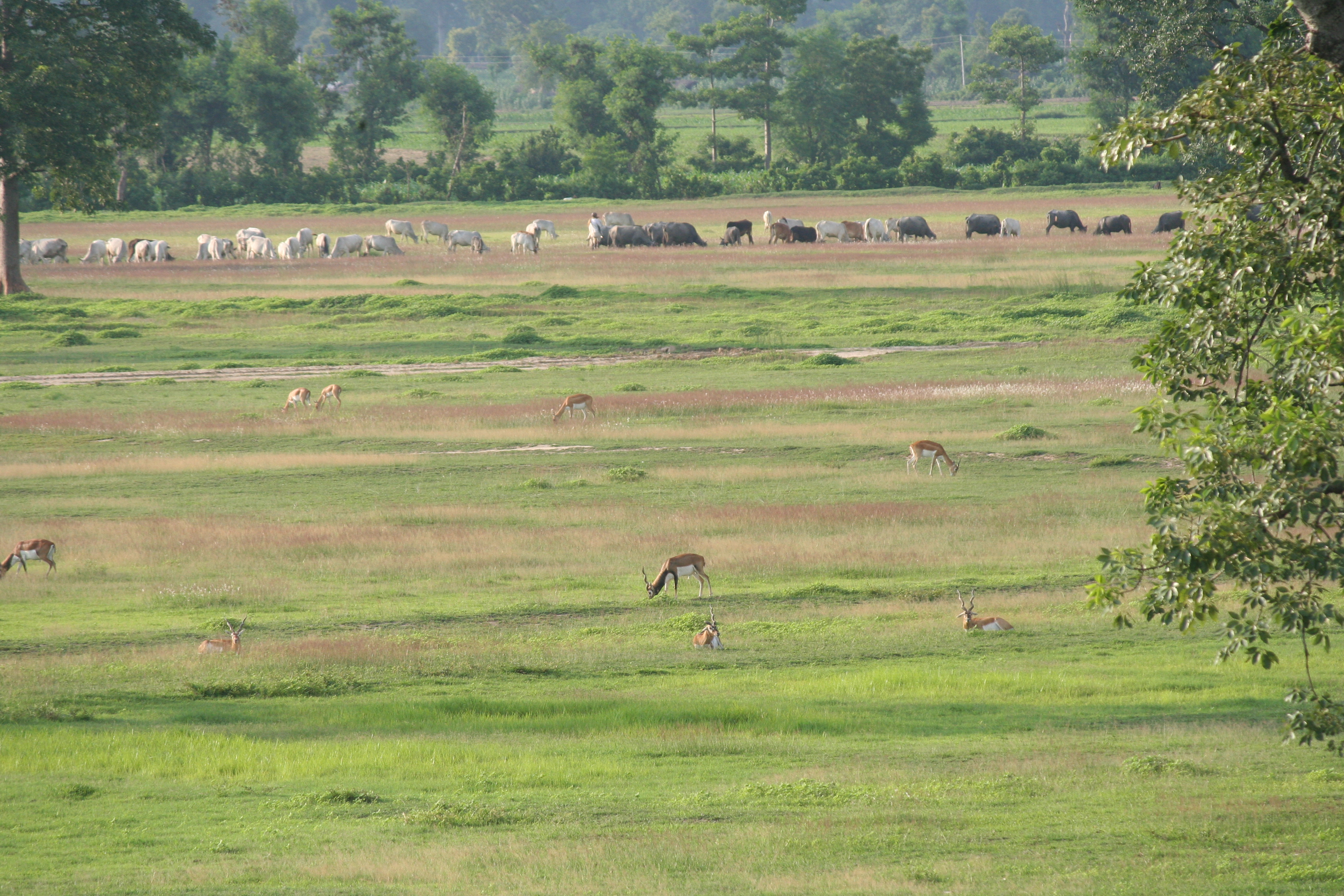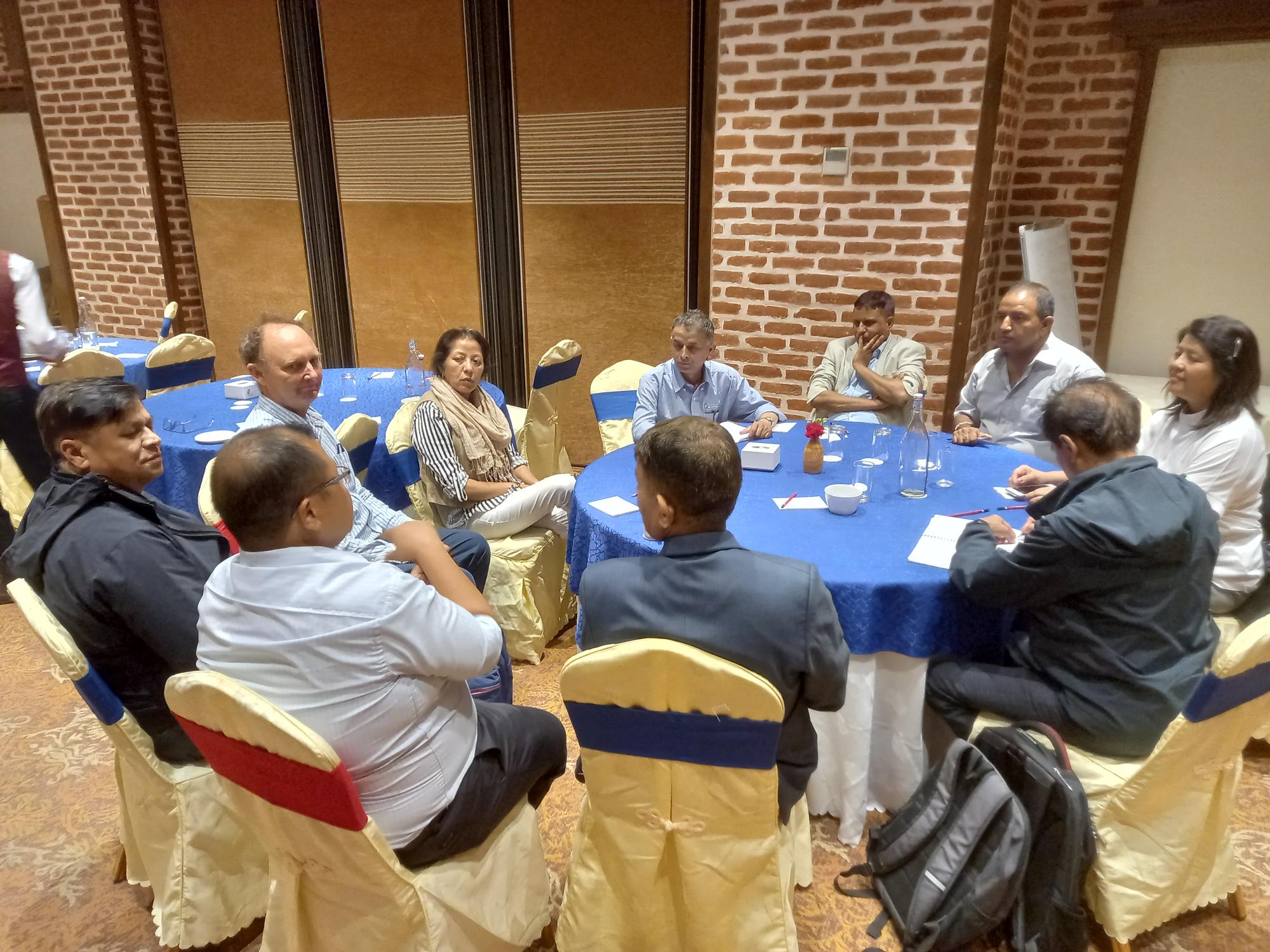
In the 2021/22 financial year, 12,672 incidents of human-wildlife conflict were recorded across Nepal, mainly damaging crops and livestock. Despite various preventative measures, including compensation payments from the government, electric fencing and predator-proof stables, the problem persists. In the last five years, damage to crops and livestock by wild animals has increased by 20.4% and 43.1% respectively each year. These escalating trends not only endanger wildlife, but also encourage a hostile attitude towards wildlife conservation.
In view of this urgent problem, BIOFIN Nepal in collaboration with the Ministry of Forests and Environment has developed risk financing solutions for wildlife damage compensation, which are among the 11 priority funding solutions. This initiative is being piloted in selected protected areas, high wildlife conflict areas and biological corridors across Nepal. The aim is to mitigate the cost of crop damage and livestock theft caused by wildlife while promoting coexistence between humans and wildlife.

To launch this project, BIOFIN Nepal in collaboration with Ujayalo Nepal, a national service provider, organized an introductory workshop on 26 April 2024. The aim of the workshop was to collect stakeholders' views and concerns regarding the inclusion of wildlife-related losses in the insurance scheme. Fifty participants representing insurance companies, I/NGOs, CBOs and various government departments and ministries attended the workshop chaired by Dr Buddhi Sagar Poudel, Joint Secretary, Ministry of Forests and Environment.
The participants praised the holistic and integrated approach being adopted to develop and test insurance schemes to address the growing challenges in the country. However, they emphasized the importance of leveraging the lessons learnt in Nepal rather than reinventing the wheel. They also emphasized the crucial role of local and provincial governments in the success of the insurance schemes. The participants recommended focusing the pilot project on areas of human-wildlife conflict outside protected areas and suggested reconsidering the selected pilot areas.
Although the insurance company representatives agreed to cooperate, they expressed concerns about the sustainability of previous insurance programmes implemented in a similar context. Despite the initial success, only a few schemes were continued after the project period as the communities were not willing to pay the premiums. Therefore, securing funding for the premiums is crucial for the sustainability of these schemes.
In response to stakeholder feedback, BIOFIN is conducting a feasibility study to identify the most appropriate insurance schemes (private led, community led or a mixed model), estimate insurance premiums using risk methodologies and develop mechanisms to finance the premiums. A technical committee with representatives from the Ministry of Forest and Environment, BIOFIN, insurance companies, Nepal Insurance Authority and Ujyalo Nepal will support this process.
Two insurance companies have already expressed their willingness to cooperate and a local government from the Mohana Laljahdi Biological Corridor in Sudurpaschim province has agreed to contribute to the insurance premiums. The National Insurance Authority has also pledged its support for this initiative.
Dr. Poudel concluded the workshop by reiterating the Ministry's commitment to support pilot insurance programmes to address the conservation challenges in Nepal. He emphasized that human-wildlife conflicts need to be resolved to sustain conservation efforts and that it is important to ensure sustainability from the beginning. The Ministry pledged its full support to make this initiative a success and called on conservation partners and stakeholders to work together.

Categories
Archives
- April 2025 (3)
- March 2025 (8)
- February 2025 (2)
- January 2025 (5)
- December 2024 (4)
- November 2024 (5)
- October 2024 (14)
- September 2024 (6)
- August 2024 (9)
- July 2024 (7)